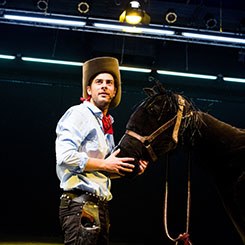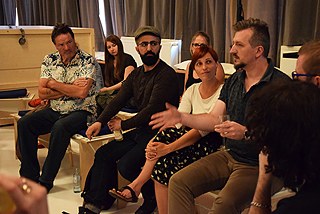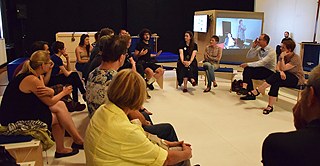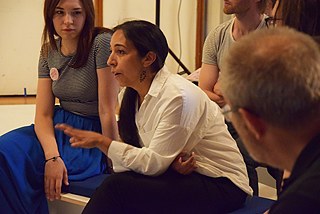Schauspielhaus Graz, Austria Theater Festival June 2017
P3M5 Participates in the 2017 Playwrights Festival at Schauspielhaus Graz
The Schauspielhaus Graz organized their second Playwrights Festival June 6 – 11, 2017. The theme of the event was privacy. Short films from the P3M5 plays were presented in a video installation during the festival. Performances and public talks added to a rich program of this six-day festival.
Wilfried Eckstein, former director of the Goethe-Institut Washington, attended. In this article he shares some of his impressions.

The play starts with a search for the iconic picture of our era of data surveillance. The central theme is the question of how we can protect ourselves against surveillance. Of course, it is also a story about the whistleblower who became both a rebel hero and the Don Quixote of our time. But in this play, the actor and the audience together explore whether it’s possible to build a personal firewall against unwelcome interceptions, and if so, how it would work. Wearing different costumes, the audience tries out what it’s like to exchange encrypted communications with friends. How do you kiss when you’re wearing a suit of armor?
The actor and co-author Thomas Halle received a theater prize for his performance in 2015: As described by the awards committee, “His play raises questions that extend beyond the theater evening: how can theater talk about topics such as internet surveillance? Is the analogous theater space, the analogous actor, not a single anachronism? Is it not a strength of theater that it can invent naïve images such as that of putting on armor in order to bring clarity to complicated issues such as the operation of peer-to-peer encryption and the internet dilemma of the desire to be simultaneously protected and naked?”

Paco Bezerra explained that his play hotmigrants is not about his personal opinion: “But I raise a question and the public has to decide.” One day he came across a website with the lurid title hotmigrants. It showed images of men who were held in a camp for migrants. They posed as in a beauty contest. The driving question for his short play was: is this a morally bad thing, to exploit the situation of migrants in camps and make them the object of our voyeurism? Or do they regain dignity by showing off and collecting likes for their beauty? Does social media serve as a container for the vanity of super egos? Does it perhaps offer these people a chance to connect with others in their search for a new life in their new country?
Alex Lorette confirmed that his play White Pig also does not present his personal opinion, but instead brings a phenomenon into public awareness and onto the stage: the change of a cultural pattern. His play is intended to be experienced with a VR headset, which ensures the most adequate representation of the play and the transformation that is taking place in the concept of reality, in particular for the generation under the age of 30. They share a dominant feeling that everything in life (with very few exceptions) is public. So what looks virtual in the beginning becomes alive in the context of an immersive experience. Digital life is not a parallel world any more. It is shaping our life. In theater, this can mean that the action is not taking place on a stage a few meters away from the audience, but instead the viewer is now standing in the middle of the scene of action. The form of theater is changing along the transformation of what real life has been and will be. Digital is no longer a life apart, but has instead become the physical world.

Csaba Szekely, a Hungarian playwright currently living in Transylvania, was also asked to comment on his play Quality Reliability. He has been thinking a lot about the corrupting effect of autocratic power. The more a government abolishes limits for exerting power, the more it invades people’s lives. In professional structures, we observe that the position someone holds shapes the way he behaves towards others. Wielding power has an effect on discriminating between bad and good. We basically all know for ourselves what is good and what is bad behavior. For example, it is clear that nobody should be fired for being critical or for a particular statement or post on social media. But in actuality, the freedom of expression is curtailed, as people in power exert influence on civic life.
